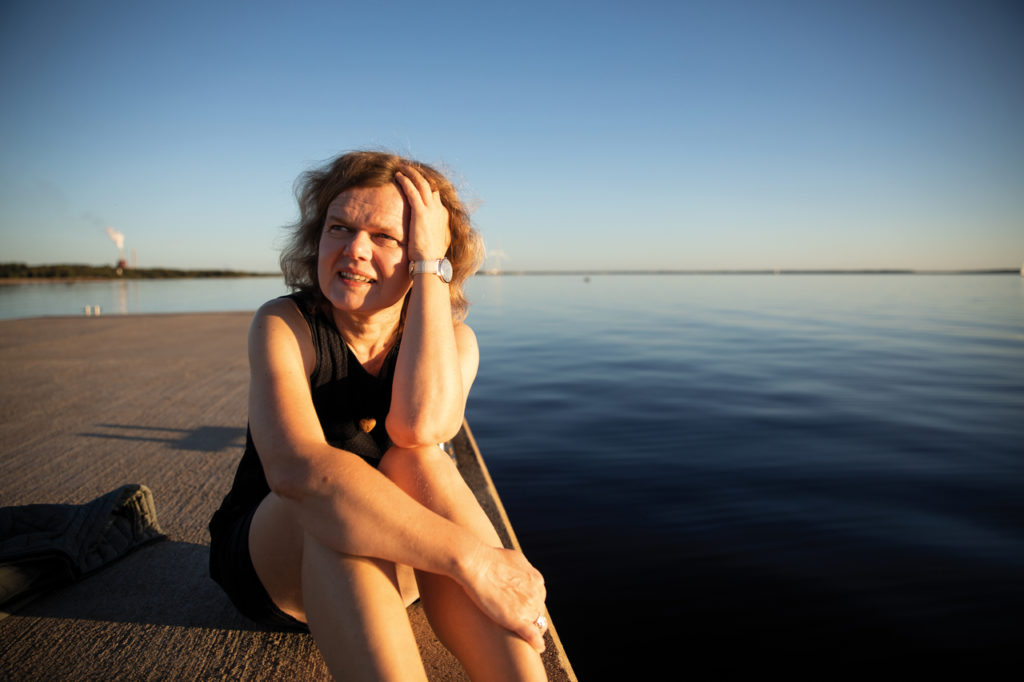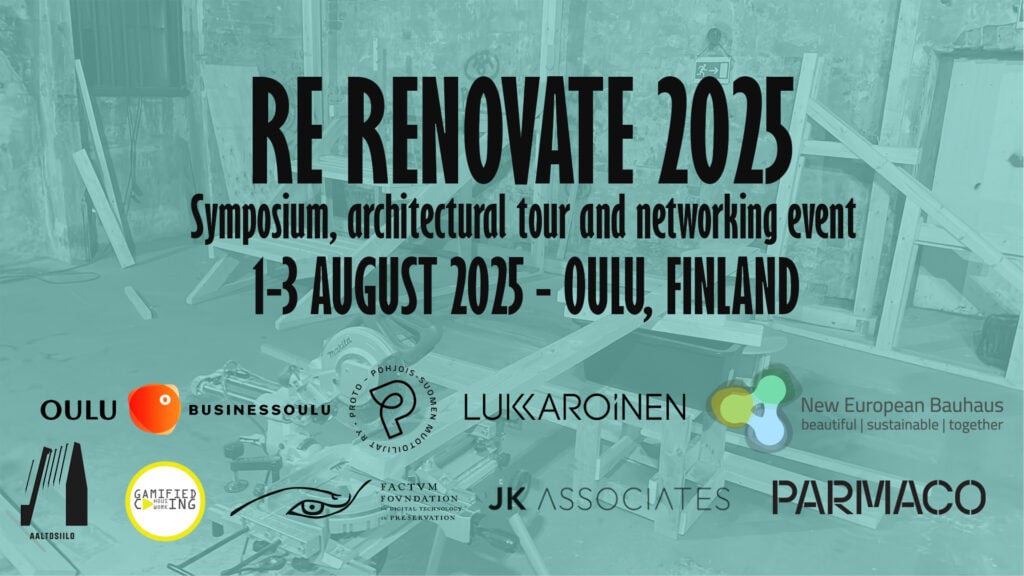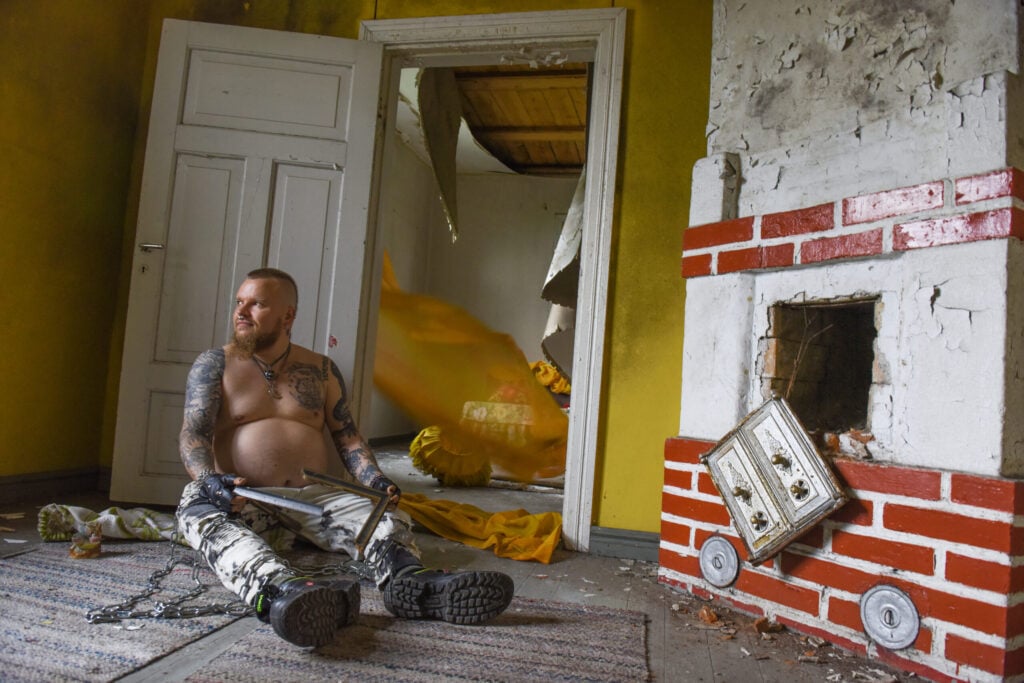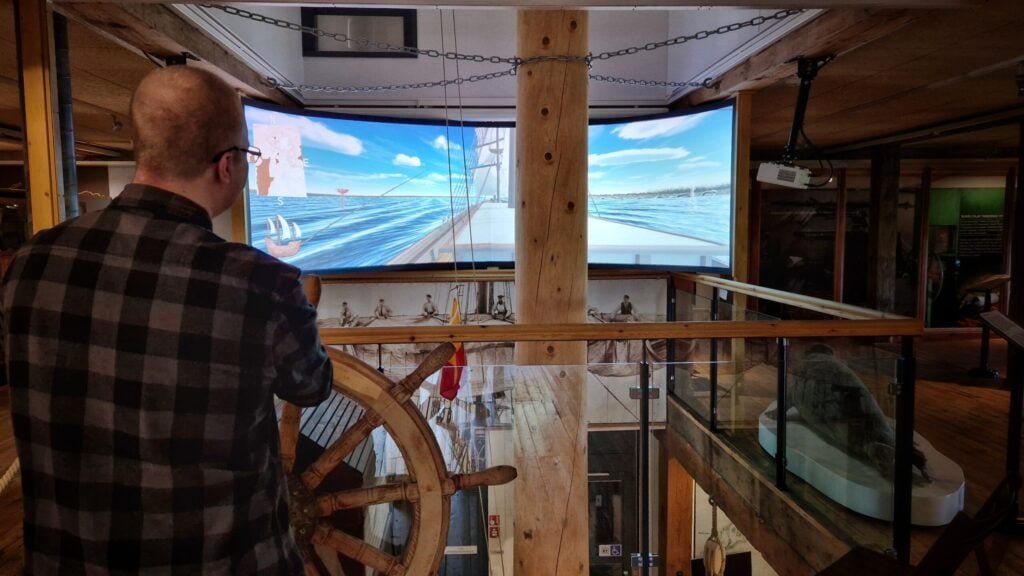 Disaster often strikes when you’re on top of the world. In early August I moved to Oulu after a wonderful six-week holiday. Bursting with energy, I was keen to meet my new colleagues and start working on story ideas to promote the Oulu 2026 bid. Things were going very well for about three weeks – until I woke up one morning to find that I couldn’t see things clearly with my left eye.
Disaster often strikes when you’re on top of the world. In early August I moved to Oulu after a wonderful six-week holiday. Bursting with energy, I was keen to meet my new colleagues and start working on story ideas to promote the Oulu 2026 bid. Things were going very well for about three weeks – until I woke up one morning to find that I couldn’t see things clearly with my left eye.
It wasn’t a dramatic loss of vision. There was no pain and I had no problem working through the day. But things took a sudden turn in the afternoon when I noticed a black curtain descending over my eye. It looked sinister: it was slowly waving, as if in a breeze. I called the hospital. I got through to a very kind nurse who spoke perfect English almost straightaway. She told me to come to Accident and Emergency.
This was my first contact with Finnish health care and I was impressed. Oulu hospital’s A&E seemed to be well-organised and not too busy. The nurses explained the process very clearly. The waiting areas were quiet and comfortable. All seemed to be under control.
In London, going to A&E can be a chaotic and pretty horrible experience. You have to sit in a crowded waiting room for a very long time. The government has a target that all patients arriving at A&E should be seen within four hours. London hospitals are struggling to achieve the target. Figures from March 2020 show that only 74% of patients are seen in less than four hours.
In Oulu I was seen by an eye doctor, Katri, in less than two hours. She told me I had a detached retina and I needed an urgent operation. Soft-spoken and very reassuring, Katri was patiently answering all my questions. She was also happy to chat about the films I had made about Finland which was very good: I had been quite shocked to have suddenly found myself with a detached retina and talking about my stories calmed me down.
In London, I probably would have waited for an examination for most of the night and I wouldn’t have been surprised if they’d told me: “Come back in a month, my love.”
Nurses and doctors in London are equally dedicated professionals but the system is under huge strain. The British health service has fewer doctors and nurses and hospital beds than many other European countries. According to the Organisation for Economic Co-operation and Development, for every 10,000 people in Finland, there are 32 doctors, compared to 28 in Britain. There are 40 hospital beds for every 10,000 Finns, compared to 26 in the UK.
After the 2008 financial crisis, the British National Health Service’s budget was frozen in real terms for ten years. An estimated 4% annual increase would be needed to keep pace with an ageing population and sophisticated new treatments. The shortfall in financing has had a real effect on the quality of health care. Waiting times are long. Doctors and nurses are overworked.
So I count myself very lucky that my retina got detached in Oulu rather than in London.
Here I was back at the hospital within a few hours from diagnosis to be examined by two other doctors who made arrangements for surgery straightaway. Friendly, open communications struck me once again. “You know, if I needed an eye surgery myself, I would only want Pasi to do it. You’ll be in the best hands,” one of the doctors confided. And when I found out they wanted to give me general anaesthetics – something I was a lot more worried about than the actual eye surgery – the other doctor told me his wife also had to undergo general anaesthesia recently. He described how it was done, what I would feel and said it was all fine with his wife. It didn’t feel like talking to two highly-qualified doctors that I’d only just met: the tone felt more like between old friends who had known one another from kindergarten, chatting in a bar.
The nurses were just as friendly and cheerful. There was quite a bit of paperwork to fill in before the surgery and translating some of the questions gave us a good laugh. There were also some extra questions for a recent arrival from London such as “Have you visited a hospital in Britain in the last year?” It turned out that Britain had such a poor reputation for hospital infections that they would have given me a private room after surgery if I’d stepped foot in a hospital in Britain over the last year. Another indication of the gap between standards in the two countries.
The surgery went well and before I knew it, I was on the ward and served a tray of gourmet food for dinner: fish cakes, mashed potatoes and beetroot, a crispy side salad and raspberry mousse. All freshly prepared and very tasty. So different from the forlorn-looking cheese sandwich I was offered after giving birth in a London hospital.
And that was not the end of food service: at about eight in the evening the nurse came back and asked if I wanted iltapalaa. “What’s for iltapalaa?” I asked. The nurse looked at me, wondering which planet I had come from. “Kahvia,” she said in a defiant voice. Of course. Silly me. What else would you want in the evening in a Finnish hospital if not your 14th cup of coffee in the day. I happily had one. After living here for three months, I can have as much coffee as I want and still fall asleep without any problem.
My co-payment bill arrived in the post a few days after surgery. I was puzzled by the four bank account numbers, wondering which one I should pay. I was told it didn’t matter: I could choose any of them, the money will end up in the same place. A quirky feature in the wonderful world of Finnish health care that saved my eyesight.
Kiitos, Suomi!
Erika Benke, journalist
born in Hungary. Moved to London (-97) to work for the BBC.
Now lives in Oulu and works for the Oulu2026 project.



